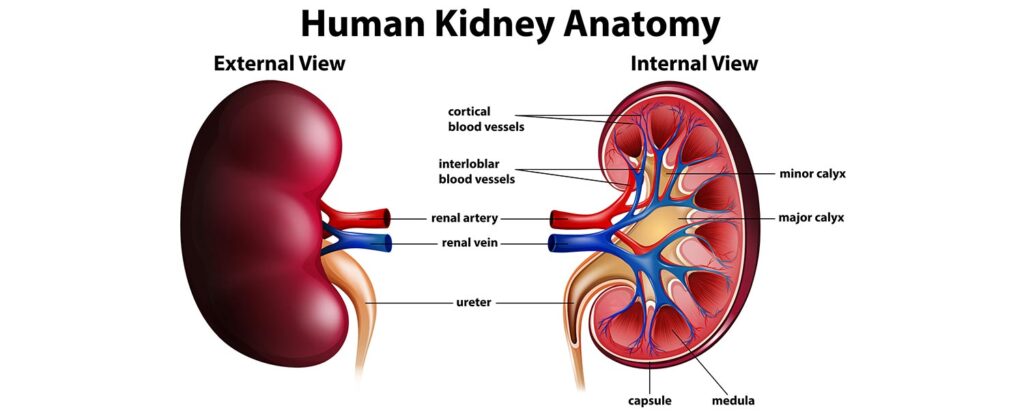Kidney failure: Prevention and treatments.
3 min read
What is kidney failure?

Your kidneys filter waste and extra fluid out of your blood so they can be removed from your body in your urine. When your kidneys stop working and can no longer do their job, it’s called kidney failure.
Your kidneys can lose up to 90 percent of their function and still do their job pretty well. Losing more than that is considered kidney failure.
There are two types of kidney failure: Acute kidney failure is a sudden loss of kidney function. It’s usually reversible.
Chronic kidney failure is a gradual loss of kidney function. It gets worse over time and isn’t reversible (but you can slow its progression). When kidneys fail, waste and extra fluid builds up in your body. This causes the symptoms of kidney failure.
symptoms of kidney failure. Usually there are no symptoms in early stages of kidney failure. When they do occur, symptoms may include: confusion, decreased urine output, fatigue, difficulty concentrating, itching, muscle twitches and cramping. Metallic taste in the mouth, nausea and vomiting. Loss of appetite, seizures, swelling in the body (edema) that starts in the ankles and legs (peripheral edema). Shortness of breath due to fluid buildup in the lungs and weakness (asthenia).
Tips for preventing kidney failure. Because high blood pressure and diabetes are the most common causes of kidney failure, many of the prevention tips are related to managing these two conditions.
- Manage your blood sugar. Diabetes increases your risk for heart disease and kidney failure. That’s just one reason to manage your blood sugar.
- Manage your blood pressure. High blood pressure can increase your risk for heart disease as well as kidney failure.
- Maintain a healthy weight. Obesity can increase your risk for conditions associated with kidney failure, such as diabetes and high blood pressure.
- Eat a heart-healthy diet. A heart-healthy diet — one low in sugar and cholesterol and high in fiber, whole grains, and fruits and vegetables — helps prevent weight gain.

- Reduce salt intake. Eating too much salt is associated with high blood pressure.
- Drink enough water. Dehydration reduces blood flow to your kidneys, which can damage them. Ask your doctor how much water you should drink per day.
- Limit alcohol. Alcohol increases your blood pressure. The extra calories in it can make you gain weight, too.
- Don’t smoke. Smoking reduces blood flow to your kidneys. It damages kidney function in people with or without kidney disease.
- Limit over-the-counter pain medication. In high doses, nonsteroidal anti-inflammatory drugs (NSAIDs), such as aspirin, ibuprofen, and naproxen, reduce the amount of blood flow to your kidneys, which can harm them.
- Reduce stress. Reducing stress and anxiety can lower your blood pressure, which is good for your kidneys.

- Exercise regularly. Exercise, such as swimming, walking, and running, can help reduce stress, manage diabetes and high blood pressure, and maintain a healthy weight.
If you think you might have kidney disease, it’s important to see your doctor for evaluation. Getting an early diagnosis and treatment can help slow the progression to kidney failure. If you know you have kidney disease, regularly see your doctor to monitor your kidney function. While chronic kidney disease can’t be reversed, its progression can be slowed with appropriate treatment.
Source:kidneyfund.org




